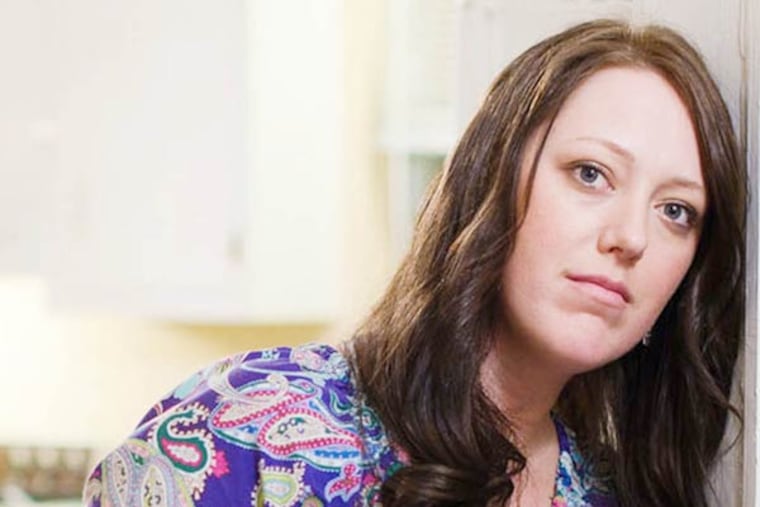She's living 'Paycheck to Paycheck'
HBO documentary from Maria Shriver explores the life of a hard-working single mom who's barely making ends meet.

* PAYCHECK TO PAYCHECK: THE LIFE & TIMES OF KATRINA GILBERT. 9 tonight, HBO.
YOU'D PROBABLY count yourself lucky to have someone like Katrina Gilbert taking care of a person you love.
A certified nursing assistant who spends her days - sometimes as many as eight in a row - lifting, feeding, cleaning and otherwise caring for the residents of a Tennessee convalescent home, Gilbert actually seems willing to listen to those who no longer get much of a hearing from anyone else.
All for $9.49 an hour.
That's a bargain for everyone but Gilbert and her three young children, the subjects of "Paycheck to Paycheck: The Life & Times of Katrina Gilbert," a Maria Shriver-produced documentary that premieres tonight on HBO.
As a representative of the 42 million women in the U.S. living at or below the poverty line, Gilbert's a fair choice for a film that's out to make a point. She's far from perfect, yet not so easily dismissed by those who'd prefer to blame the poor for bringing it all on themselves.
She didn't, she notes, set out to become a single mother of three by age 30. But after years of marriage to a man who became addicted to pain pills ("I got three good children out of him - that's it"), she ended up there anyway, although she hasn't yet been able to afford the actual divorce.
Her love life has been complicated by her boyfriend's own family issues - when they first met, he had custody of his four daughters - but he seems like a solid choice, nonetheless, for a woman in her situation.
She has her eyes on college so she can train for a better-paid health-care job, but her own health problems, which derailed an earlier effort to continue her education, may get in the way.
Her child care may be subsidized, but her food-stamp eligibility comes and goes, and a paycheck that amounts to $730 for two weeks' work is spoken for within hours of its receipt.
Watching Gilbert race through days that will look familiar to most working parents - dropping off, picking up, weighing the consequences of a daughter's cough, a son's sudden tantrum - I found myself wondering, too, about the equally patient woman who cares for and teaches Gilbert's children.
She's considerably older than Gilbert, but they both wear the brightly patterned uniform of the too-often-underpaid helping class. They're both doing jobs that make it possible for other people to go out to work every day, knowing that their children (or elderly parents) are safe and cared for.
These things, these people, are supposed to be important to us.
If "Paycheck to Paycheck" makes anything clear, it's that Gilbert works hard in a country where hard work is supposedly prized.
So why does hers seem to add up to so little?
On Twitter: @elgray
Blog: ph.ly/EllenGray